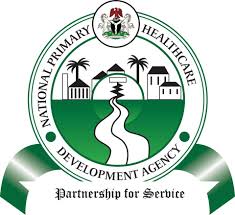Results-Based Financing, key to enhanced healthcare delivery – NPHCDA
The Director, Primary Health Care Systems Development at the NPHCDA, Dr Oladimeji Olayinka told newsmen on the sidelines of NSHIP National Technical Working Group (TWG) Meeting in Abuja.
He described the project as the most enduring strategy for enhanced PHC delivery in the country.
 Olayinka said “NSHIP is a World Bank-assisted project implemented by NPHCDA.”
Olayinka said “NSHIP is a World Bank-assisted project implemented by NPHCDA.”
The director added that “its framework provides results-based incentives, especially at service delivery points to increase the use and quality maternal and child health interventions.”
He said that since the inception of the project, Nigerians from various states had continued to benefit from it.
He noted that the implementation of NSHIP provided the opportunity to test alternative financing strategies for the health sector.
On the objectives of the TWG meeting, he said it was to assess the status report on the implementation of recommendations from the last TWG.
He noted that it would review the progress of project implementation over the five past months and to identify general and state specific implementation issues.
Olayinka said the gathering was to also provide overall technical guidance, provide recommendations for the project steering committee and share plans and strategies to sustain the gains of NSHIP.
Dr Faisal Shuaib, the Executive Director, NPHCDA, had earlier said that the project had made tremendous impact in the country’s health system.
Shuaib said that one of the impacts was the Basic Health Care Provision Fund (BHCF), modeled after the NSHIP.
He added that the meeting was coming at a critical period, as there was need for policy makers within the health sector to identify opportunities that they could leverage on.
He noted that NSHIP Quality Supervisory Checklist was adopted when the national Integrated Supportive Supervision (ISS) was reviewed and that the TWG meeting was one of the coordinating platforms for the project.
He said that the TWG meetings was to avail the leadership of health institutions in the implementing states the opportunity to discuss progress made, identify challenges, share ideas and innovations and agree on the way forward.
NSHIP commenced in three states in 2011, through a loan from World Bank to the Federal Government.
The project aims to increase the delivery and use of high impact maternal and child health interventions and improve the quality of care at selected health facilities.
NSHIP also aims to strengthen institutional performance at the Federal, State and LGA levels.
This will be done by decentralising health facility financing, addressing structural issues, and motivating health worker’s performance through performance bonuses.
The project started with a pre-pilot in one local government area each in Adamawa, Nasarawa and Ondo states, namely: Fufore, Wamba and Ondo East, respectively.
Based on documented achievements of the current NSHIP financing was granted to government to rehabilitate insurgency ravaged healthcare infrastructure in the North East.
Additional Financing is adapted to the specific conditions in the zone by reinforcing healthcare service delivery under PBF.
In 2017, the AF-NSHIP commenced in Dass Local Government Area of Bauchi State, Gombe Local Government Area in Gombe State, Ardo Kola in Taraba, as well as Maiduguri Metropolitan Council and Jere Local Government Area of Borno, and Potiskum and Damaturu in Yobe.
Additional scale up had also been conducted in the Additional Financing NSHIP states to ensure increased coverage.



